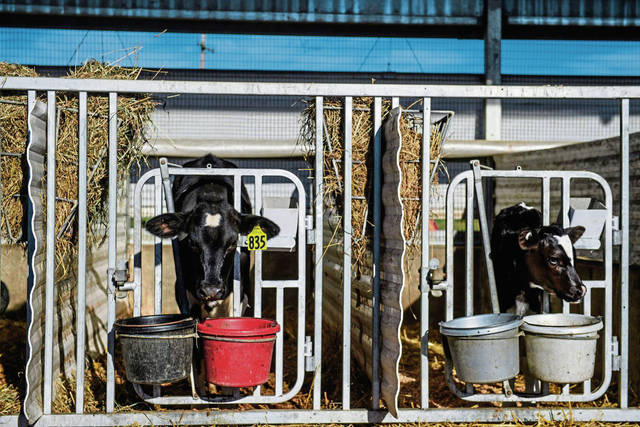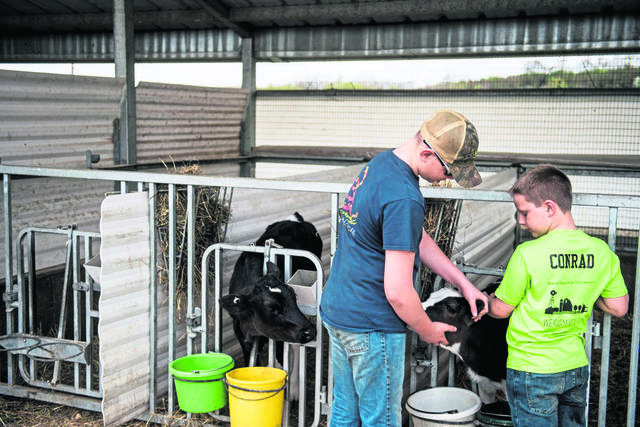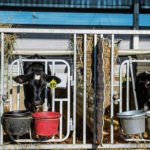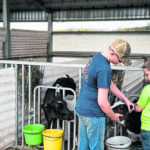For smaller farms in Southwestern Pennsylvania, growing commodity crops may not be enough to keep them afloat.
The grain farmer may have to learn how to mill flour. The fruit farmer may have to learn how to produce jam. The dairy farmer may have to learn how to make cheese.
These “value-added” products are becoming more popular, and profitable, as farmers struggle to remain viable amid depressed prices, competition and foreign imports.
“We started growing organic grains in 2008, and we started milling in 2014,” said Marcy Tudor of Weatherbury Farm in Independence Township, Washington County.
As the logic of value-added agriculture became clear, the farm decided to apply for a Value-Added Producer Grant (VAPG) from the U.S. Department of Agriculture. The three-year, $40,000 grant, with a 50% match from Weatherbury Farm, was used for marketing, branding and grain processing improvements.
“It certainly helped us find a better place in the marketplace,” Tudor said. “We’re just one small farm. The only way a small farm can succeed is to do value-added production.”
Westmoreland County farmers interested in value-added agriculture can learn more at a workshop being held at 9 a.m. Monday at the Penn State Extension office, 214 Donohoe Road, Greensburg. The free workshop will be led by Karen Kuhns, USDA Rural Development area specialist, and a limited number of participants will be able to meet with her one-on-one afterward.
The VAPG program is designed to help farmers make the transition to agricultural activities related to the processing and marketing of new products, said Mimi Thomas-Brooker, project director for the Pennsylvania Veteran Farming Project. Funding is designed to generate new products, create and expand marketing opportunities and increase income for local producers.
Although not part of the VAPG program, Pleasant Lane Farms near Pleasant Unity is a historic dairy farm that is expanding into value-added agriculture via cheesemaking.
The family farm, operated by Ralph Frye Jr. and his three sons and their families, began looking at value-added options in 2018 — as the milk-price slump dragged into its fourth year.
The average price for Class III milk, used for spreadable and hard cheeses, dropped from $22.34 per hundredweight in 2014 to $14.61 per hundredweight in 2018. Milk is typically priced and sold in 100-pound increments, which equals about 12 gallons.
Although that price rebounded in late 2019, cheese production will give Pleasant Lane Farms a profit margin that it doesn’t have with liquid milk, said Jason Frye, one of Frye’s three sons.
“There’s a substantial ability to get a lot more value out of your base commodity product through the value-added process,” he said. “We could generate as much cash flow off of 20% of the product being converted to cheese as if we were putting 100% into fluid milk sales.”
The farm, a longtime producer for Turner Dairy Farms in Penn Hills, received a $286,744 grant from the Pennsylvania Dairy Investment Program in 2019 to construct a creamery for cheesemaking. In addition, it received a $77,338 grant for marketing costs and the construction of an on-farm classroom and tour facility.
With the building nearing completion, the farm plans to begin cheese production in March. In addition to several types of artisan cheeses, the farm hopes to provide bespoke cheesemaking services to small family farms and co-ops.
“They can bring us the milk, and we can convert their product into cheese and put their label on it,” Frye said.
Not every farm is a good candidate for value-added production, but Frye thinks Pleasant Lane will succeed because of its proximity to markets in and around Pittsburgh.
“Pennsylvania and the federal government are doing great things by offering these value-added grants. They will save farms,” Frye said. “I think they have to be careful about where they place those projects. You have to have a pretty high degree of confidence that you’re going to be successful.”
Tudor said Weatherbury Farm stands a better chance of competing with larger farms or foreign producers with the help of value-added products.
“We think the value-added program is a great program,” she said. “I would urge anybody to think about products they can produce on their farm and to take advantage of it.”
To register for the VAPG workshop, visit TroopsToTractors.org/vapg.
Deadline for the latest round of VAPG grants is March 10.











